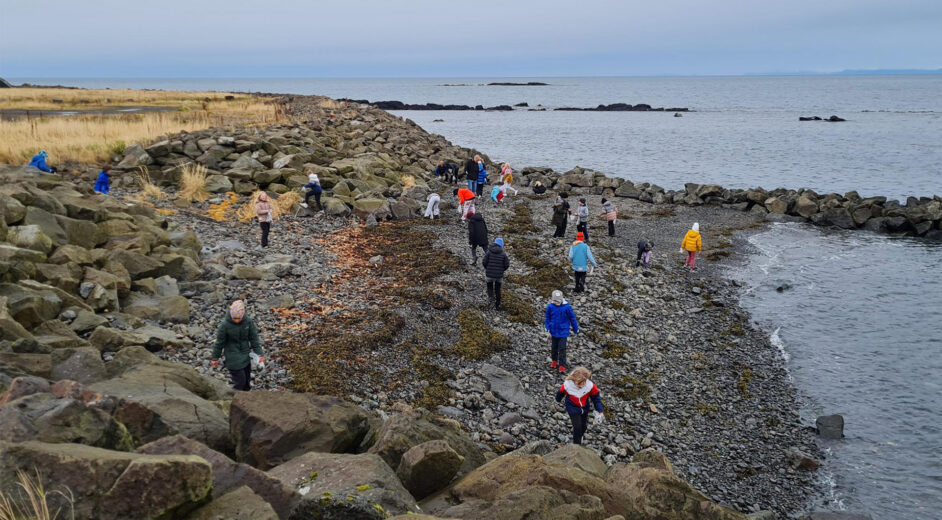Icelandic Teaching Material is Translated into all Scandinavian Languages, Finnish and Faroese
A common Nordic teaching material about the pollution of oceans and seas has taken teachers and students by storm. Development of the teaching material in all Scandinavian languages, Finnish and Faroese was made possible via Nordplus Nordic Languages collaboration between "Norden i Skolen" and the Icelandic interest organisation Landvernd.
By Joan Rask
It's probably the best e-book I've ever seen!
So says Tinna Steindórsdóttir, who is a teacher at Brekkubæjarskóli elementary school located in Akranes, a town on the west coast of Iceland.
Tinna Steindórsdóttir talks about an interactive teaching material that was developed for school students throughout the Nordics. The material was created as part of the Nordplus project "Digital language meetups and Nordic cooperation for a greener future" in the programme Nordplus Nordic Languages. The task was to create a digital teaching package with e-books, animated films, interactive solutions and action-based competitions. The first teaching material was created in Icelandic and then everything was translated into Danish, Swedish, Norwegian, Finnish and Faroese.
The project had two partners. One was the Icelandic environmental organisation Landvernd, which has existed since 1969 and has specialised knowledge on the protection of nature in Iceland. The other partner was Norden i Skolen, which was also the coordinating institution. The two partners also developed teachers’ material together, with questions for reflection.
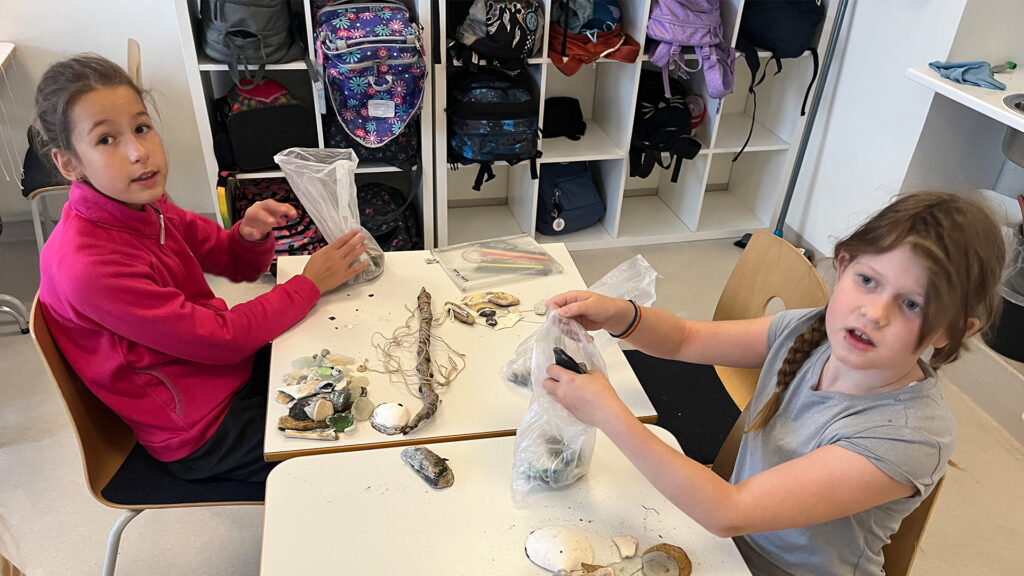
Photo: Tinna Steindórsdóttir, Brekkubæjarskóli Elementary School
A big topic in year four in the Akranes fishing village primary school Brekkubæjarskóli is the sea, so for Tinna Steindórsdóttir it was a bound assignment to teach the students about the conditions in the sea.
“I googled and tried to find materials suitable for the students’ ages, because they didn’t have any books that I felt were accessible enough. I wanted to teach them about how our country has survived and depended on the sea over the centuries – and then I stumbled across this material – and I thought, wow, this material is absolutely perfect!” she says.
Tinna Steindórsdóttir is actually a trained English teacher at upper secondary level, but wanted to try her hand at a school class she could accompany over several years as class teacher and get involved with at a deeper level.
"For me, this is not just teaching about the sea. It is about something that really, really matters to me. My dad's a fisherman, so I've grown up in close contact with the sea and the life of my family and our wellbeing has sort of relied on the sea," she explains.
At one time, Akranes was a proud fishing village, where virtually all inhabitants were involved in the fishing industry. Today, a lot of the commercial fishing has moved elsewhere, but the sea still surrounds the town on three sides.
“I wanted the children to really understand that they are children of a fishing community, to gain factual knowledge about the marine environment and our shared history. I mean if it weren’t for the fishermen, the Gulf Stream and clean and healthy seas around Iceland, we wouldn’t be here,” she continues.
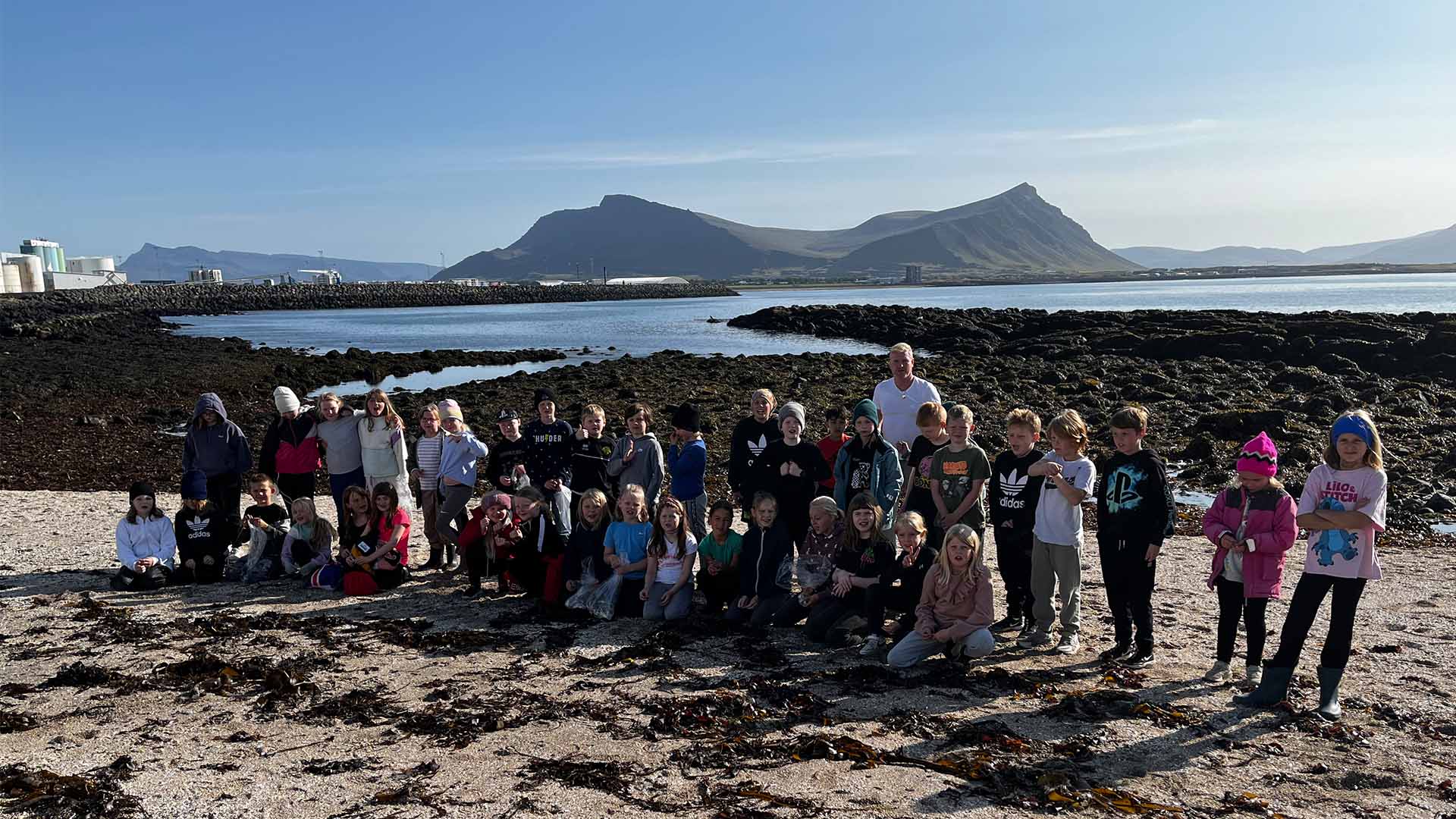
Photo: Tinna Steindórsdóttir, Brekkubæjarskóli Elementary School
Teaching with facts and feelings
Tinna Steindórsdóttir points out that it was of great importance to her that the teaching material was academically sound and that the e-books, video, fact boxes and teaching materials were thoroughly tested, and she also emphasises that teaching guides helped her organise the education programme. Her colleagues at another Icelandic primary school are delighted by the news. It is no coincidence that the teaching material was good, as many contributed to the development and testing phase. The interactive teaching material was created in close collaboration between Landvernd, Norden i Skolen and several Icelandic teachers and school students. One of the Icelandic teachers was Guðrún Jenný Sigurðardóttir , who works at Snæfellsbær Elementary School.
“I enjoyed working with Landvernd. They had so many ideas and got the students engaged in doing research at home. The course was very inspiring and also fun for both me and the students. Once they had to write down how much plastic they used in one day, and they woke up and realised, ‘I can’t brush my teeth and I can’t use the toilet seat!’ because plastic was all around them. That was fun. And they did it. And they did it well,” she says.
Guðrún Jenný Sigurðardóttir attaches great weight to the fact that the material for reflection works well both for her as a teacher and for the students:
“We made the students think. Can I get rid of some plastic? Or can I use something else instead? And also that we need to be careful, because plastic isn’t all bad. It’s also good, for example, for making heavy thing much lighter. And of course plastic is necessary for medical use. The material opened up discussion on both the good and the bad, and of course about plastic pollution in the sea,” she explains.
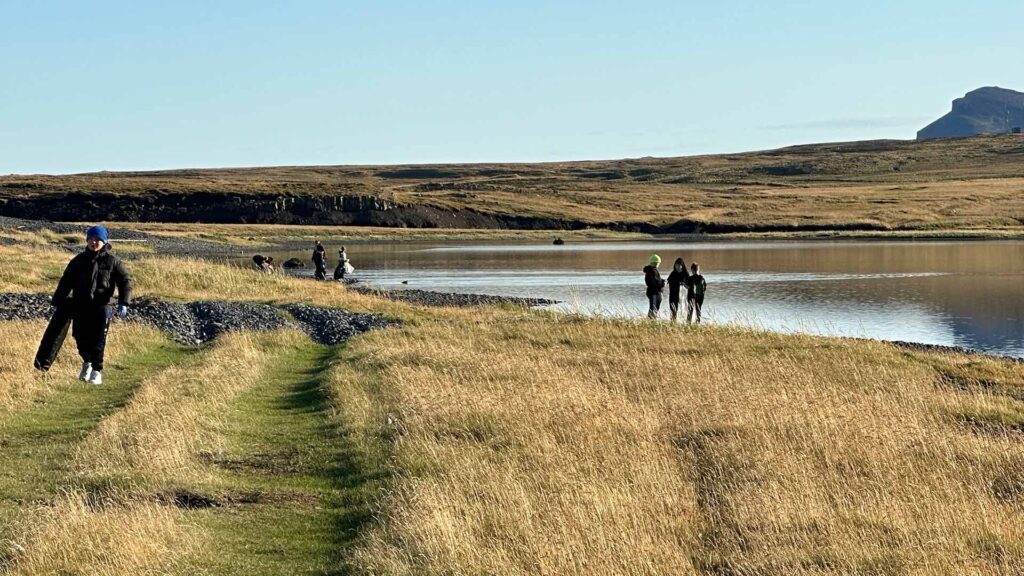
Photo: Guðrún Jenný Sigurðardóttir, Snæfellsbær Elementary School
She also emphasises that the material combines the physical and the virtual world. One of the tasks in the test phase was, for example, to go to the beach.
"We also had to check the state of the trash cans in a certain area and we also did beach cleaning. I remember that there was about 500kg once! There were shoes, clothes, fishing nets and a car tyre. All kind of trash, and we made the pupils think. Because where did it all come from? And how can we ensure that these things do not end up in the sea?” says Guðrún Jenný Sigurðardóttir.
The teaching material has been available for approximately two years, and Guðrún Jenný Sigurðardóttir has used the finished material several times in her teaching.
“The students are very interested in subjects related to clean seas. In one class we worked on global goal no. 14, “Life in the Sea”. The material worked really well for that. We used teaching methods such as: what do I know, what do I want to know and what have I learned. It was so easy to work with and it all went really well,” she says.
Translated and reused across the whole Nordic region
Norden i Skolen was the coordinating institution, and Anna Foucard was the project leader here and editor of the project.
“Norden I Skolen’s contribution was to distribute the material! We translated it into the other Nordic languages, and we made all the teaching material accessible to our existing online platforms. This was only possible because the Nordic countries are so similar that we often have the same needs with regard to teaching plans and also to the classroom teaching ifself,” she says.
Norden i Skolen has extensive experience in developing teaching material for use by schools in all the Nordic countries. They have offerings within almost every subject at almost every class level. Anna Foucard explains that when the topic is, for example, history teaching, there’s often a need for a very thorough adaptation, because the shared Nordic history also contains conflicts and therefore also different points of view. But within natural sciences and global societal issues, it is something else.
“Actually I think it’s really fantastic that it’s possible to take material that was put together in a small country like Iceland, translate it with very few adaptations, and then use it right across the Nordics,” she says.
Anna Foucard is educated in environmental sciences. She is Swedish, grew up in Uppsala, lives in Malmö and works in the office in Copenhagen, where there are several other employees who are not Danish.
“The Nordic aspect is one of the most rewarding things about this work. It’s fun to have a network in the various nations and it’s fantastic that I can combine my passion for both environment and sustainable development with my interest in languages,” she says.
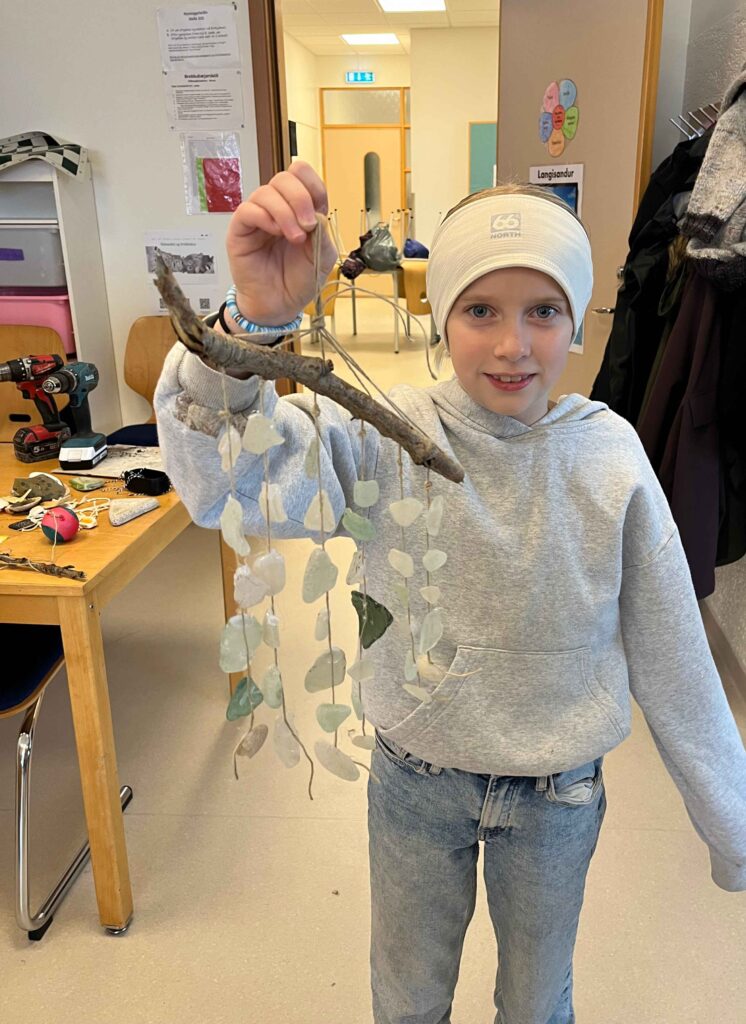
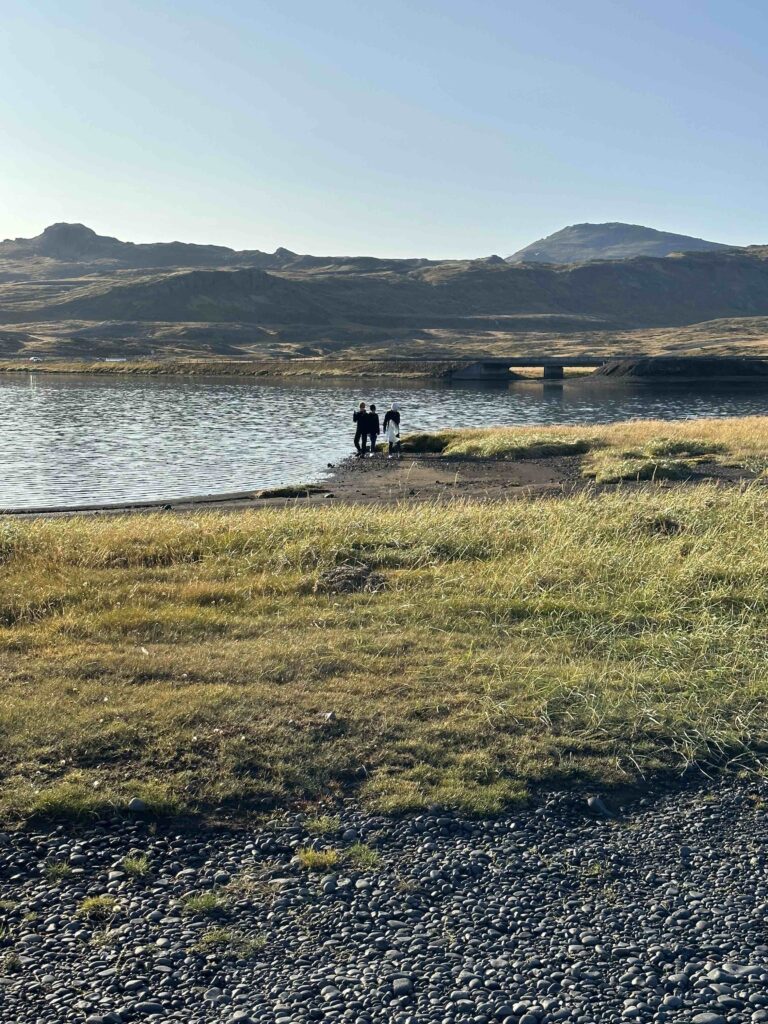
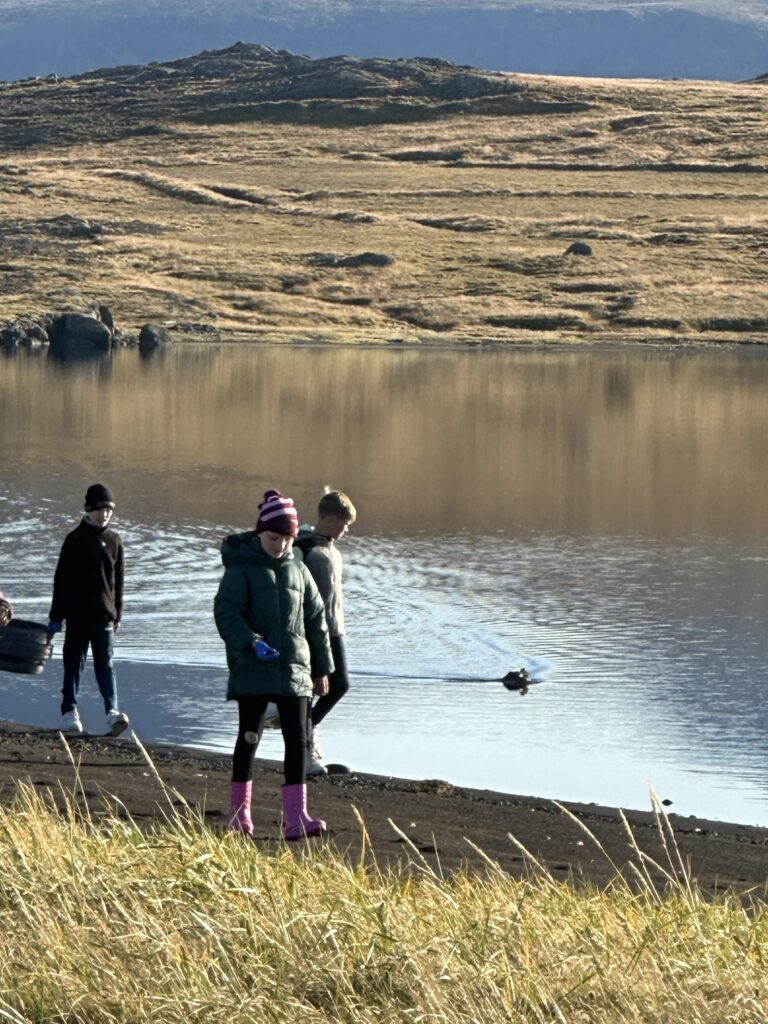
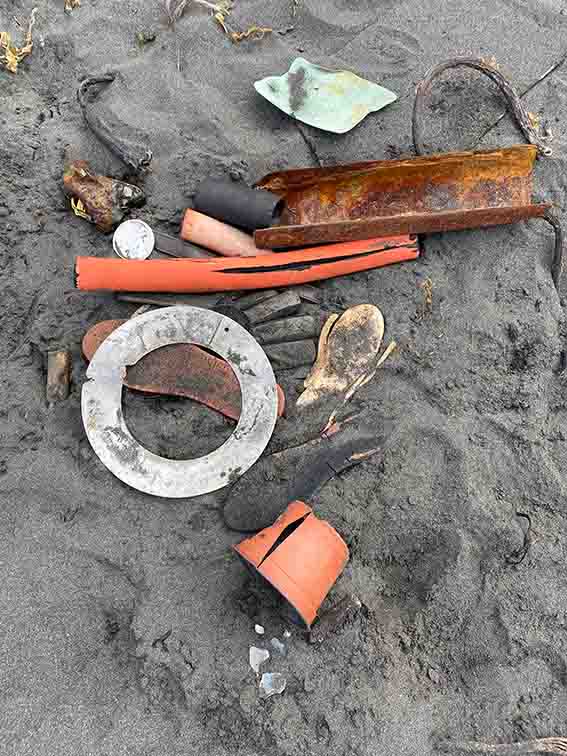
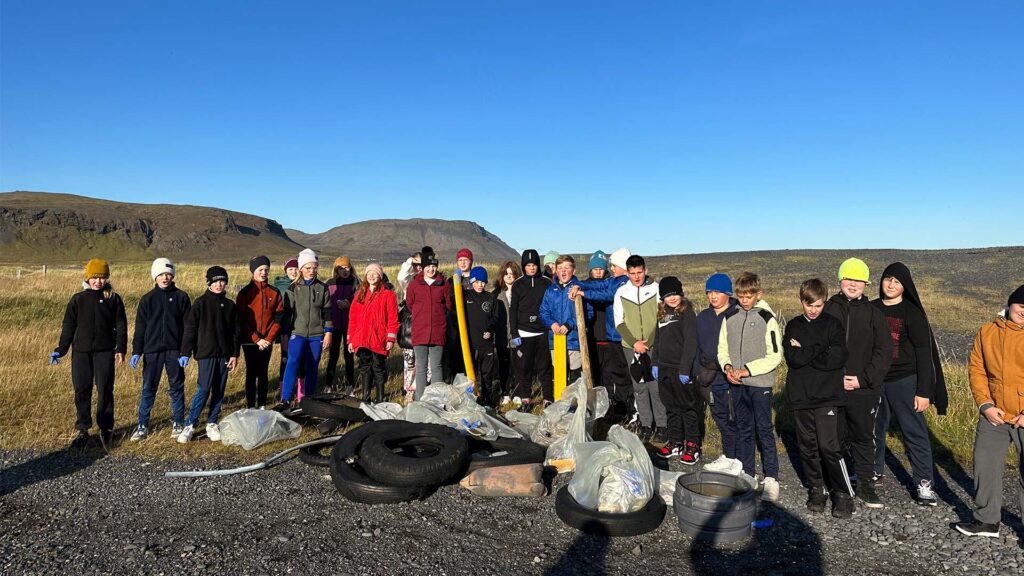
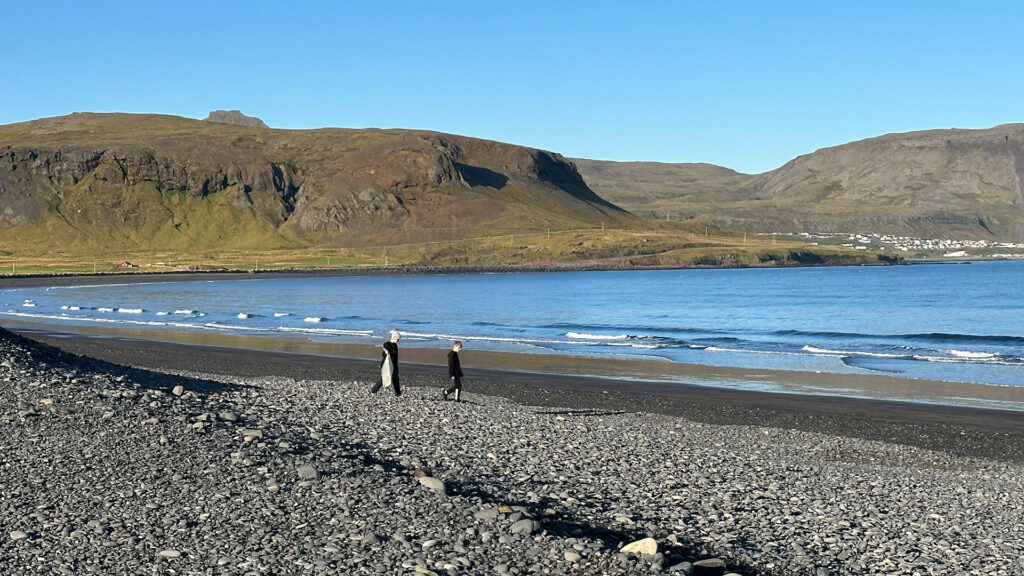
Anna Foucard places great emphasis on the societal importance of school students being introduced to sustainable green solutions early on. She shares this view with Jóhanna Ásmundsdóttir, who is a school teacher and works at the primary school in Síðuskóla in Akureyri. Also, she got her hands on the teaching material by coincidence:
“I felt that the students enjoyed looking at the live images and that they could use interactive words to find explanations. Sometimes they forgot themselves because they were so busy looking at the objects and reading. I really liked working with this material,” says Jóhanna Ásmundsdóttir.
She also highlights the value of teaching early on about the sustainable use of the sea, and of the children understanding the subjects regardless of how good they are at reading.
“The more capable children were particularly interested, and they read every single word and all the explanations they could find. But those who are not such strong readers, they did it a little slower, but they still stayed with it,” says Jóhanna Ásmundsdóttir.
The three Icelandic teachers all agree that the potential of looking at the marine environment across the Nordic countries, through collaboration with school classes in other Nordic countries, will add an extra valuable layer to their teaching.
“We hope that the teaching can be instrumental in changing something in them, at their home, at school and in their local community”, says Guðrún Jenný Sigurðardóttir, and Jóhanna Ásmundsdóttir nods in agreement.
They are ready for that step.
“I would like to have more of this kind of material, and I hope I’ll have the opportunity to work together with teachers from, for example, Norway on sea pollution. That would be hugely exciting and a fantastic opportunity for the students,” says Tinna Steindórsdóttir.
Facts:
- The Icelandic e-book: Hreint haf (Cleans seas)
- Norden i Skolen
Norden i Skolen is a common Nordic interest organisation formed by Foreningen Norden’s national branches in all the Nordic countries. They work to strengthen Nordic cooperation at all levels in Nordic primary schools and to share knowledge about the language, culture and history of the Nordic countries. The main funding comes from the Nordic Council of Ministers and is administered by Foreningerne Nordens Forbund.
- Teaching materials in nine languages (everything is free)
- More than 33,919 registered teachers
- Offerings from year 1 to 10 and for upper secondary education
- Activities such as school chats, friendship classes, films and much more - Landvernd
Landvernd, the Icelandic Environment Association, is a national non-governmental environmental organisation based in Reykjavík. Landvernd was founded in 1969 with a main emphasis on nature conservation, in particular on the conservation of soil and vegetation.
Interested in a green and sustainable world?
- Join our Green Seminar: Nordplus for a greener future!
Read more and registration for the seminar.
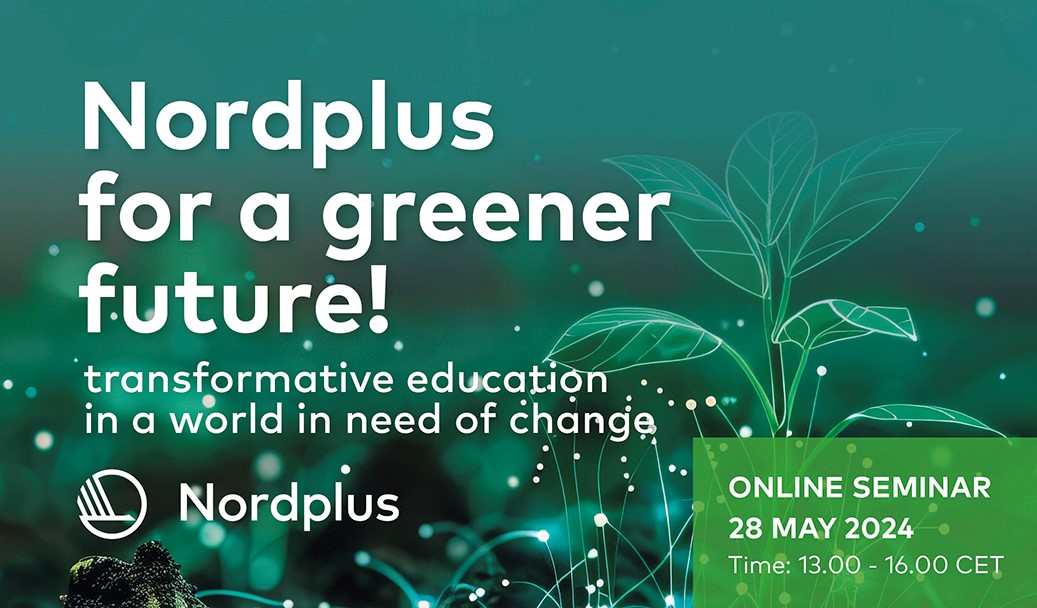
Read the article in Nordic (Danish)
Coordination Institution
- The Federation of Nordic Associations
Partner Institutions
- Landvernd Icelandic Environment Association, Island
Program
- Nordplus LANGUAGE
